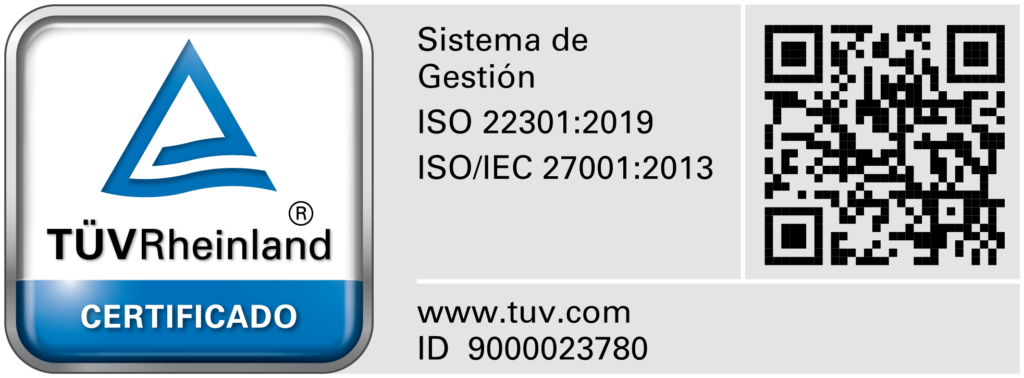Close your eyes and think: how many women scientists would you be able to name? Take a break. Give a try, list them. What is the result?
Maybe Marie Curie came to your mind, and it is probably because the Polish physicist and chemist was the first person to win the Nobel Prize twice. Or maybe you have also thought of Jane Goodall who dedicated her life to the study of chimpanzees. But what about Rosalinda Frankin or Hedy Lamarr? And what about Rita Levi-Montalchi, Françoise Barré-Snoussii, Margarita Salas, Jocelyn Bell Burnell, Barbara McClintock or Gertrude Belle?
Women scientists may have passed unnoticed for too long throughout human history. But today, their colleagues, women and girls are raising their voiceq to highlight the great contirbution of their work to science, engineering, technology and mathematics. Women in science, today is your day! Girls interested in science, this is your moment!
On the path to equality
On the International Day of Women and Girls in Science and despite global efforts to achieve gender equality worldwide, many women and girls are still suffering from inequalities in the field of science. Women represent only 28% of the total number of researchers in the world according to the UNESCO Institute for Statistics.
The threat of stereotypes, the lack of recognition or visibility of their researches, the still existing sexist attitudes and the glass ceiling are just some of the problems that are impacting women in their university and work environment. As a consequence, girls are not encouraged to pursue science careers in face of a future far from equality.
However, days like today are essential to promote girls’ interest and participation in science, as well as to encourage educational investments in this area. Today is a day to raise awareness about the need to include women in the research work field and about the importance to recognise the value of their contribution in the progress of global societies. We cannot waste this talent! Today is a day to remind to the rest of the world how women are increasingly gaining access to these professions and raising their voices to achieve equality of opportunity. Your voice matters too!
On this International Day, I urge commitment to end bias, greater investments in science, technology, engineering and math education for all women and girls as well as opportunities for their careers and longer-term professional advancement so that all can benefit from their ground-breaking future contributions, UN Secretary-General, António Guterres.
Women in Science: the highlights
Marie Curie
She was a Polish scientist considered a pioneer in the field of radioactivity and had to start studying clandestinely. Her researches made her win two Nobel Prizes in physics and chemistry, respectively. Thanks to Marie Sklodowska Curie, the rest of the world has discovered elements, techniques and treatments of incalculable value for humanity.
Rosalind Franklin
Byophysicist and crustallographer of London origin, Rosalinda played a fundamental role in the understanding of the DNA structure by observing it through X-ray images. Her contribution was essential!
Hedy Lamarr
This multifaceted actress and engineer, born in Vienna, is none other than the inventor of the transmission technique in the spectrum that governs today’s communications system.
Jane-Goodall
Born in London, Jane Goodall is world-renowned for her study of the chimpanzee’s way of life.
Rita Levi-Montalchi
Rita received the Nobel Prize in 1986 for her discovery of the nerve growth factor in neurology.
Francoise Barre-Snoussii
She received the Nobel Prize in Medicine in 2008 for her contribution in the discovery of HIV.
Margarita Salas
The Spanish Margarita Sala is one of the great promoters of Science. She created a scientist’s school specialised in her passion: molecular biology. Her study of the bacterial virus Phi29 has allowed to understand in depth the functioning of the DNA.
Jocelyn Bell Burnell
This British astrophysicist discovered the first radio signal of a pulsar as part of her thesis. However, it was not her but her tutor who received the Nobel Prize in physics that year.
Barbara McClintock
She received the Nobel Prize for Medicine for her specialisation in cytogenetics.
Gertrude Belle
She used to work as a laboratory assistant as she was unable to teach at the New York University for being a woman. However, this did not prevent her from receiving the Nivel Prize in Physiology and Medicine in 1988 along with Hitchings and Sir James Black.
What if you were the next one?
You cannot hope to build a better world without improving the individuals. To that end each of us must work for his own improvement. – Marie Curie, Nobel Prize in Physics and Chemistry.
Being part of the change is not a question of gender, but of being aware that everyone deserves to live in equality of opportunities, far from stereotypes or discriminations. We can all spread messages of peace, inclusion and empowerment. The change is in your hands!
At Moneytrans, we want to add our grain of sand by highlighting initiatives that promote education, women’s empowerment and global integration and we are open to collaborate. We are not just a money transfer company, we are much more. Discover all the actions that we carry and JOIN OUR CHALLENGES!






